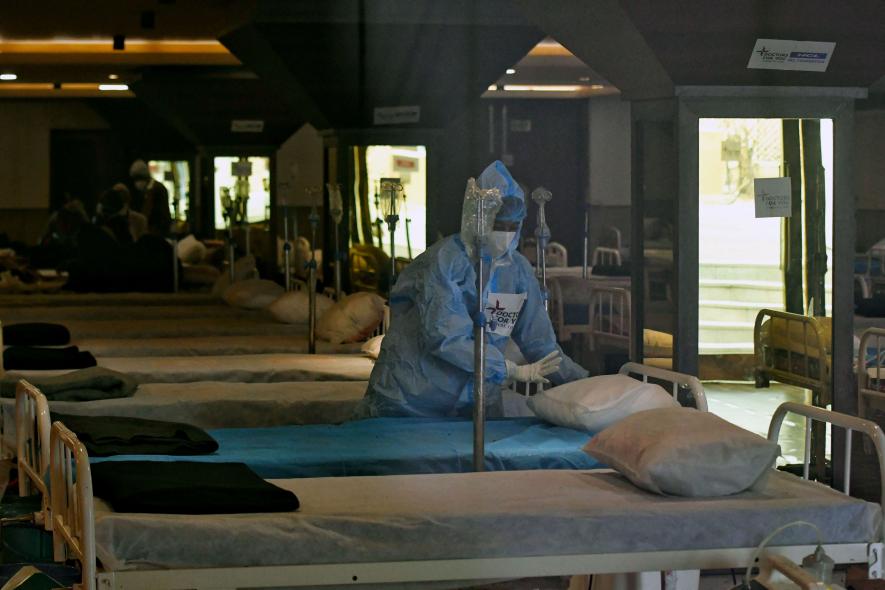How the Dynamic Zero Covid Strategy Proved Superior to Living With Covid

Two years have passed since Covid-19 was first detected, and two approaches to try and deal with the disease, namely “living with Covid” and the Dynamic Zero Covid Strategy, have emerged. Experience so far conclusively demonstrates that in terms of public health and economic metrics, the Dynamic Zero Covid Strategy is superior to living with Covid. This evaluation is best exemplified by the USA, where living with Covid has led to almost a million deaths. It is the single largest cause of death in US history, apart from the genocide of native Americans and African American slavery.
The United States could have avoided most of these deaths if its policymakers had been willing to adopt the Dynamic Zero Covid Strategy. However, that did not happen since it would have involved a reckoning with “un-American” initiatives such as universal healthcare, besides having to advance other welfare provisions for working people, such as universal paid sick leave.
However, the “dynamic” element in the Dynamic Zero Covid Strategy refers not only to aiming for zero Covid-19 infections over time but continuous adaptive evolution of the strategy itself in light of developments.
In the initial stage, when there were no vaccines for Covid-19, the Dynamic Zero Covid Strategy involved non-pharmaceutical interventions such as lockdowns, travel restrictions, and universal testing, besides institutional quarantine and medical treatment of the infected. However, once vaccines were developed, mass vaccination became an additional policy instrument in the toolkit of the Dynamic Zero Covid Strategy.
Countries that adopted this strategy, such as China, handled the pandemic better than the living with Covid approach on all public health and economic activity metrics. They have significantly fewer deaths, a reduced number of infections, a lower likelihood of the emergence of new virus variants (since lower transmission results in fewer mutations and recombinations of the virus that causes Covid-19) and far better economic outcomes. Free treatment of the infected has played a crucial role in the effectiveness of the Dynamic Zero Covid Strategy.
Vaccines do not confer permanent immunity against existing vaccines. Nor do they necessarily offer assured protection against newer variants of the virus. But they do significantly reduce the likelihood of death and severe disease due to Covid-19 caused by existing or newer variants. Further, no matter how effective non-pharmaceutical interventions, treatment practices and vaccines are, there will likely be some outbreaks of Covid-19. Therefore, the Dynamic Zero Covid Strategy has to evolve to deal with these challenges. This evolution could include several elements besides those which are already in place.
First, policymakers who advocate the Dynamic Zero Covid Strategy must emphasise masking in public places in their country till Covid-19 is globally eradicated. This will ensure that even if the virus re-enters the community (due to false negatives in some tests, for instance) where the Dynamic Zero Covid Strategy is in place, its further transmission will be limited. Such an outbreak will be more easily contained and overcome. Emphasis on masking is also possible in countries that are living with Covid. However, policymakers in these countries, especially the United States, project non-masking as a sign of having recovered “freedom”. In other countries living with Covid, the policy emphasis on masking waxes and wanes with the number of reported infections. This happens because of the attenuation of past gains in public health and scientific temper due to the hegemony of the neo-liberal project.
Second, regular random testing in communities will help in the early discovery of undetected outbreaks. This will allow Covid-19 mitigation measures to be implemented at an early stage of an outbreak. Thereby, possible outbreaks can be rapidly contained and eliminated. This is possible in countries living with Covid, but neo-liberal “fiscal constraints” tend to militate against such initiatives.
Third, an increase in genomic sequencing of positive cases will help in early identification of new variants of the virus (including “imported” variants). As a result, scientific work to appropriately tweak existing vaccines—and their future employment in booster doses and vaccination of the unvaccinated—adapting current treatment protocols etc., can be expedited. The ability of countries living with Covid to adopt such a policy intervention tends to, once again, run up against neo-liberal requirements of “sound finance”.
Four, though there is no long-run trade-off between public health and economic activity under the Dynamic Zero Covid Strategy, there is such a trade-off in the short run if lockdowns are required. To deal with this short-run trade-off, the country in question could maintain stocks and inventories of goods to minimise short-term disruptions in value chains. Holding inventories will be rational only if the cost of doing so is lower than the cost of mitigation of lockdown-induced disruptions to value chains. We may safely assume that holding such inventories would be rational in most cases.
Five, if granular regulation of interactions between the uninfected and possibly infected people is possible through a participative technology-driven process (informed by solidarity), then lockdowns can be appropriately blended with the calibrated reopening of economic activities.
Six, mass testing and institutional quarantine and treatment of the infected could allow for phased, geographically-sequenced, reopening of economic activities within areas where the Dynamic Zero Covid Strategy is tackling an outbreak.
Finally, countries that adopt a Dynamic Zero Covid Strategy need to advocate more actively for countries living with Covid to adopt this strategy. It will require countries living with Covid to break with the neo-liberal project. Success in this advocacy would not only rapidly overcome the pandemic but could also advance international cooperation on a wider range of issues of global importance.
The author is a professor at the Department of Economics, Satyawati College, University of Delhi. The views are personal
Get the latest reports & analysis with people's perspective on Protests, movements & deep analytical videos, discussions of the current affairs in your Telegram app. Subscribe to NewsClick's Telegram channel & get Real-Time updates on stories, as they get published on our website.
























